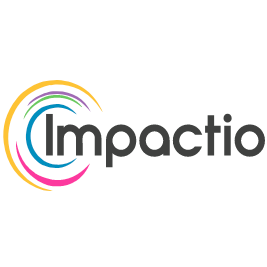Some Ethical Decisions to Consider for Using AI in Recruitment

In the Netflix series Black Mirror, there is an episode where the protagonist is told by AI that in order to afford a better home, she needs to befriend higher status people on social media channels. This might sound absurd, but it is this kind of algorithm that leaves us, citizens, with many questions about the modern era and how AI is impacting our lives.
Recruitment techniques are increasingly using AI, and in this respect, we should always question and seek to understand how AI is choosing one candidate resume over another, and what the implications of these robotic processes are.
AI based tools in recruiting can, “synthesize vast datasets to provide automatic and personalized feedback at scale, and in a confidential manner.” This speed helps reduces costs for employment centers and recruiters alike, but as consumers of this technology we also need to be aware of how datasets are related to outcomes in this respect.
To take a quick example, it’s not just our resumes that are being scanned over when we think about AI and recruiting techniques, it could very well be a candidates credit score, our ‘Liking’ habits on LinkedIn, or even whom we are connected with or what skills we have and have been endorsed with. As candidates, we might not be aware that all of these facets play into algorithms, but they can, and that is where some of the questions surrounding AI and recruiting need to be talked about.
It is only through exchanging good dialogue amongst our co-workers and fellow colleagues that we can address some of the AI related concerns and help make AI processes in recruiting more just and transparent.
AI vs. Human Preferences
If we think about the means for conducting a thorough job interview over videoconference, such as using the applications Skype or Zoom, it might cause some perfectly normal anxiety for candidates in the hours leading up to the call. This anxiety can be quelled when the interviewer and interviewee get along well throughout the call, and the interview becomes more of a relaxed conversation. In fact, these are the best interviews to have, as previously mentioned in a different post, it represents a prelude to real cultural fit within an organization.
These first or second round interviews via Skype are largely for predictions for HR. They want to see if how you presented in the interview is a good prediction for how you will present day in and day out on the job. So what happens if we throw AI into the mix of prediction in this sense?
There are several ways to look at this. For one if AI is based around voice recognition patterns, for which the technology exists, it might be questionable what this data amounts to vs. the opinion of an interviewer who had a different mindset about how someone’s voice attested to, say, their leadership attributes.
While AI seeks to selectively look at different data points in recruitment processes, humans do to. In fact, humans are selective listeners by default or unconsciously. This is a 101 Communications concept. Most of the time when we listening to someone, we become selective listeners and tune out information in exchange for processing other concepts and affects. That’s why active listening can be so difficult and takes years to perfect.
Opportunity Costs
Overall, what we can deduct from AI used in recruiting technologies is that it might work swimmingly in some cases, and in others create an ethical faux pas so to speak. Because interviewing is never static and always changing, there might be instances when AI technology uses data that is highly relevant, and times when it is not.
This is the opportunity cost associated with AI vs. human interviewing. Firms will need to decide if cutting costs using AI is worth it in the long run of things, or if bearing more recruiting costs ultimately leads to a better long term candidate. Probably a fusion of the two will suffice in the digital era.
Related Articles

In the Netflix series Black Mirror, there is an episode where the protagonist is told by AI that in order to afford a better home, she needs to befriend higher status people on social media channels. This might sound absurd, but it is this kind of algorithm that leaves us, citizens, with many questions about the modern era and how AI is impacting our lives.
Recruitment techniques are increasingly using AI, and in this respect, we should always question and seek to understand how AI is choosing one candidate resume over another, and what the implications of these robotic processes are.
AI based tools in recruiting can, “synthesize vast datasets to provide automatic and personalized feedback at scale, and in a confidential manner.” This speed helps reduces costs for employment centers and recruiters alike, but as consumers of this technology we also need to be aware of how datasets are related to outcomes in this respect.
To take a quick example, it’s not just our resumes that are being scanned over when we think about AI and recruiting techniques, it could very well be a candidates credit score, our ‘Liking’ habits on LinkedIn, or even whom we are connected with or what skills we have and have been endorsed with. As candidates, we might not be aware that all of these facets play into algorithms, but they can, and that is where some of the questions surrounding AI and recruiting need to be talked about.
It is only through exchanging good dialogue amongst our co-workers and fellow colleagues that we can address some of the AI related concerns and help make AI processes in recruiting more just and transparent.
AI vs. Human Preferences
If we think about the means for conducting a thorough job interview over videoconference, such as using the applications Skype or Zoom, it might cause some perfectly normal anxiety for candidates in the hours leading up to the call. This anxiety can be quelled when the interviewer and interviewee get along well throughout the call, and the interview becomes more of a relaxed conversation. In fact, these are the best interviews to have, as previously mentioned in a different post, it represents a prelude to real cultural fit within an organization.
These first or second round interviews via Skype are largely for predictions for HR. They want to see if how you presented in the interview is a good prediction for how you will present day in and day out on the job. So what happens if we throw AI into the mix of prediction in this sense?
There are several ways to look at this. For one if AI is based around voice recognition patterns, for which the technology exists, it might be questionable what this data amounts to vs. the opinion of an interviewer who had a different mindset about how someone’s voice attested to, say, their leadership attributes.
While AI seeks to selectively look at different data points in recruitment processes, humans do to. In fact, humans are selective listeners by default or unconsciously. This is a 101 Communications concept. Most of the time when we listening to someone, we become selective listeners and tune out information in exchange for processing other concepts and affects. That’s why active listening can be so difficult and takes years to perfect.
Opportunity Costs
Overall, what we can deduct from AI used in recruiting technologies is that it might work swimmingly in some cases, and in others create an ethical faux pas so to speak. Because interviewing is never static and always changing, there might be instances when AI technology uses data that is highly relevant, and times when it is not.
This is the opportunity cost associated with AI vs. human interviewing. Firms will need to decide if cutting costs using AI is worth it in the long run of things, or if bearing more recruiting costs ultimately leads to a better long term candidate. Probably a fusion of the two will suffice in the digital era.
